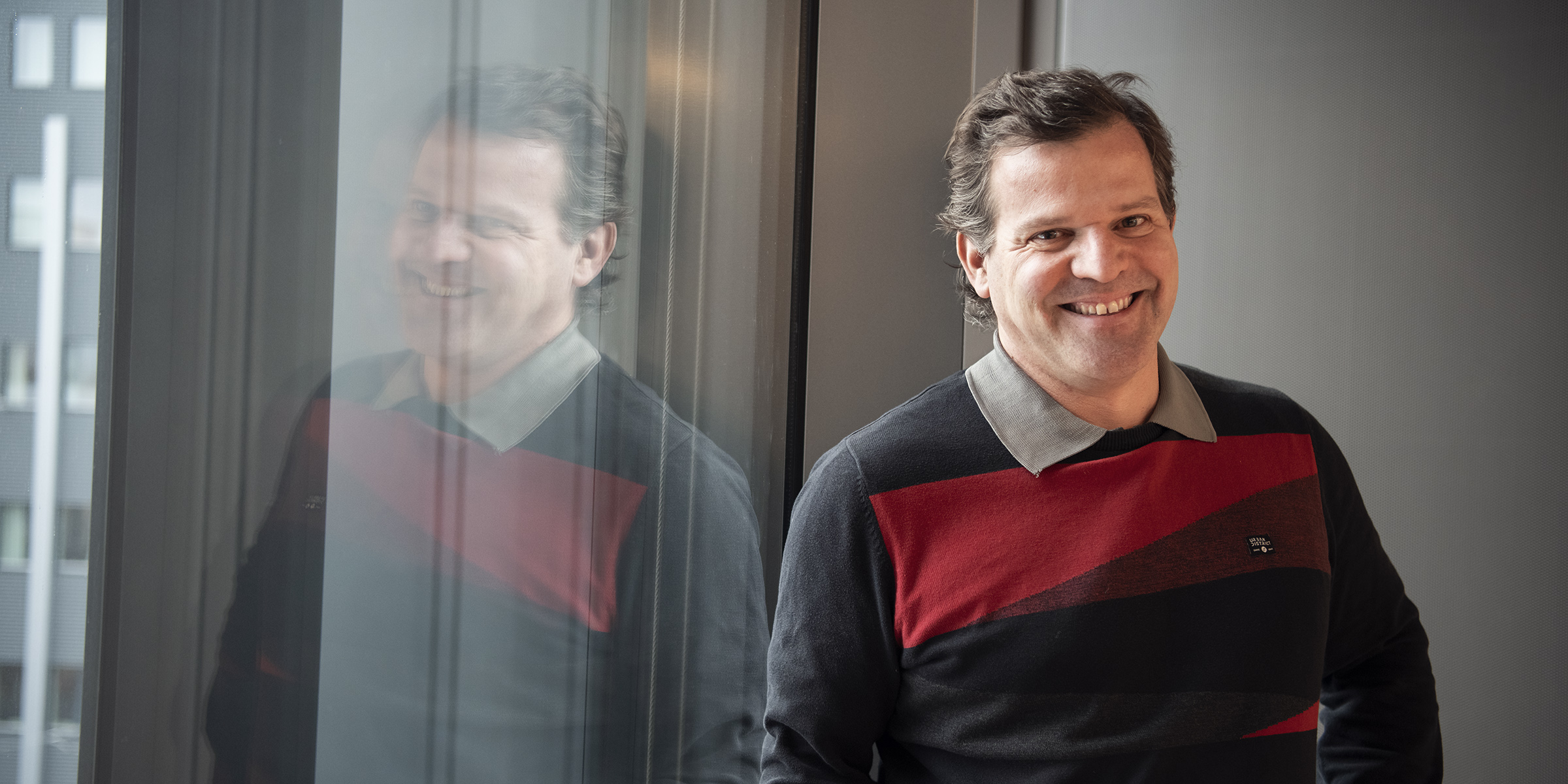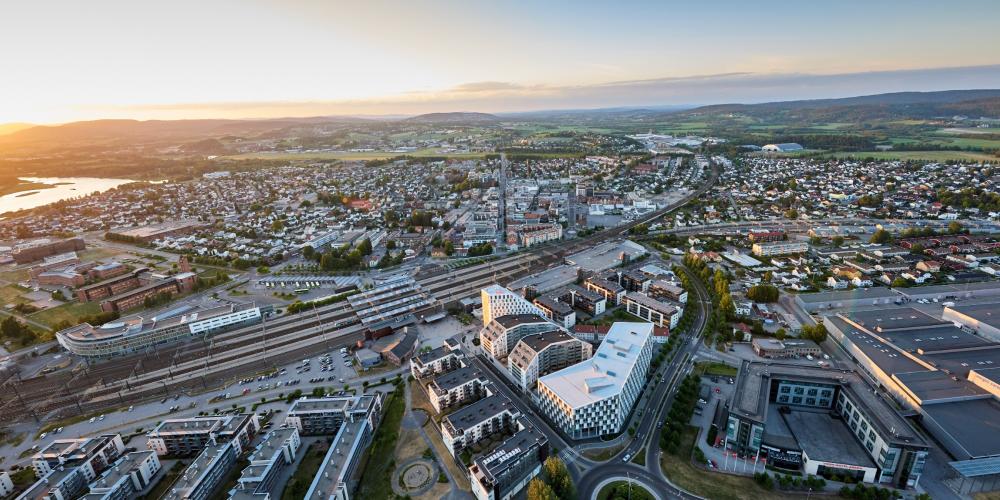Foto: Sonja Balci/OsloMet

Employee portrait of the month
Artificial intelligence and mathematical modelling is Pedro Lind's areas of expertise. He is part of NordSTAR OsloMet’s Center of Research Excellence and the OsloMet AI Lab.
Pedro is a German-Portuguese physicist and professor in scientific computing who has been working at OsloMet and Faculty of Technology, Art and Design (TKD) since 2019. He lives in Kløfta in Ullensaker. When he's not at work, he spends time with family and friends. In addition he wishes to increase his fluency in Norwegian. In the past, Pedro had music composition as a hobby, but it is becoming more and more difficult to find the time for that.
How did you get to work today?
By car. Together with my wife and son, My son is in the Norwegian-German school in Oslo, so we really commute together every day. It is one of our family reunion moments.
What's happening at work this month?
Lots of things. The AI Lab is quite a vibrant environment with lots of research activity going on. So it is difficult to do just a few things. Some of the main activities in which I am more closely working on now with my colleagues are the Virtual-eye project (oslomet.no), the AI-Mind project (oslomet.no), AIClimate@EU (oslomet.no), AI Journalism (oslomet.no), Quantum Computing (oslomet.no), and the NordSTAR initiative (oslomet.no).
Have you learned anything new lately?
Learning is constantly happening during research.
Name one thing that could make your working days even better:
Concrete answers to concrete questions in reasonable time.
Has there been anything from your field of expertise that has surprised you recently?
The lack of a consistent and universal definition of trustworthiness and sustainability in the context of AI. We have been working on that, in fact.
How can OsloMet become more sustainable in a global perspective?
No idea. But we could start with small things. When I started in OsloMet, I was very surprised with two things. First, that some lights are always on, they have no switcher. Second, that most of my colleagues were not even aware of that. It seems it is something common and natural that lights stay always on. Not very sustainable is it?
Which colleague motivates you in everyday life?
For a start, Anis Yazidi (oslomet.no), professor in machine learning. Anis is one of the best researchers I have ever worked with. His scientific outcome makes me sometimes wonder, if he has a couple of twin brothers working under the same name.
Then there is Gustavo Mello (oslomet.no), the head of the OsloMet AI Lab. Last year, Gustavo won the Innovation Prize at OsloMet, and that is not surprising. It was his insight and vision which pushed lots of initiatives within OsloMet in the right direction.
But for academics to play the game of research, we also need a good coaching team. My colleague Zacharias Andreadakis (oslomet.no) is a top R&D Senior Adviser with whom I love to work. He will always try to come up with a possible revision of what you think is a good idea into something worthy of a project proposal.
And then there is also my colleague Vera Østensen (oslomet.no), Senior Adviser at OsloMet central administration. Among other things, Vera is leading the administrative support to the four OsloMet's Centers of Research Excellence (CREs). Vera’s pro-activity was of utmost importance for us in the CREs. But working with her is not for everyone. You need to be prepared to get information, suggestions, reminders and requests 24/7!
Last but not least, I must also highlight our community of PhD and postdoc fellows in the lab. It is an honor to participate in their achievements and learn from them, and, to mention a few, Pedro Lencastre (oslomet.no), Rabindra Kadka (oslomet.no), Mohamed Radwan (oslomet.no), Heine Aabø (oslomet.no), Tumaini Kubake (oslomet.no) and Asma Belhaldi (oslomet.no). But the are many others and some you can meet at the AI Week at OsloMet.
What do you do to make others happy at work?
Humor! At least I try to do it. And that's for two reasons. First, because research and teaching is often subjected to failure and frustration. Humor is a good weapon to cope with that. Second, because humor promotes creativity, and creativity is something vital in research and teaching. There is a very nice video on Youtube of a seminar by John Cleese about creativity.
Best non-fiction book you've read in the past year?
"The Poetry and Music of Science'' by Tom McLeish. The book reminded me of my youth, when I studied music. There is a famous quote by Bertrand Russel in his article "The Study of Mathematics" (1907): "Mathematics rightly viewed possesses not only truth, but supreme beauty". When studying composition I was always fascinated by how "mathematical" music is, and bothered my composition teacher with Russel's quote. One day, when she was comprehensively fed up with my fascination about the maths of music, she replied to me: "Music rightly viewed possesses not only beauty, but supreme truth!" I agree with her, and the book by McLeish is about that also.




